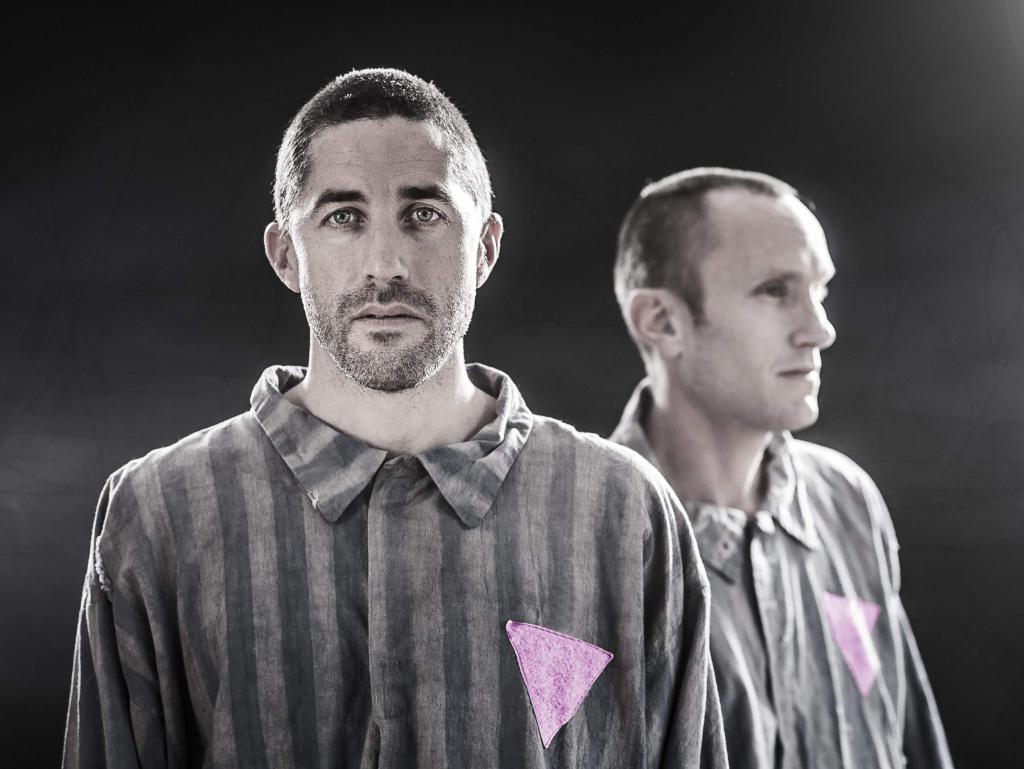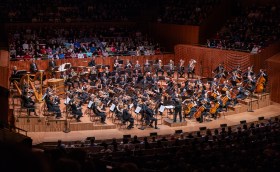Martin Sherman’s Bent deals with the Nazi abuse of homosexuals, from the infamous Night of the Long Knives to the work yard of a concentration camp.
The play opens with a scene more at home in a comedy of manners, as hung-over Max tries to remember what mischief he got up to the night before and his lover worries about their overdue rent. The tone changes abruptly however and that world is lost as the couple are forced to flee Berlin. We follow as they struggle through immigrant labour camps and failed border crossings to the inevitable encounter with the SS. The first act ends as Max commits unspeakable acts in order to deny his sexuality. The second act takes place in the labour yard of a concentration camp and explores the idea of love amid the incomprehensible horror of camp life.
A host of excellent choices have been made in Eddy Segal’s production to enhance the emotional investment of the audience and feature the heartfelt performances. The lighting discretely and effectively sets the scene and illustrates the emotional state of the protagonist. The minimalist set design and clever use of projectors provides an almost dreamlike framework for the audience to flesh out, once again bringing the characters to the forefront. The deeply affecting use of off-stage sound gave a voice to horrors too appalling to portray.
The love story at the centre of this play, flawlessly and heart-breakingly played by Christopher Brown (as Max) and Paul Blenheim (as Horst), provides an emotional compass for the audience. Our connection to the characters deepens the anguish of the events but their love gives us a resilience to withstand the storm of horrors. The play harbours a resolution so precious and powerful that I left with tears streaming down my face.
At the time of Bent premiere in 1979, neither historians nor creatives had provided much coverage of ‘Pink Triangles’, the homosexuals of World War II who were so named for the Nazi identifier they were forced to wear on their uniforms. Bent has contributed to bringing the abuse suffered by homosexuals under the Third Reich into the discourse of both academic and artistic circles. This production by Cut Lunch manages to find a message of love in a story with so much pain.
Rating: 5 out of 5 stars
Bent
Presented by Cut Lunch Productions
Written by Martin Sherman
Directed by Eddy Segal
Associate producer: Danny Delahunty
Set and Costume Design: Mattea Davies
Lighting Design: Lucy Birkinshaw
Composition and Sound Design: Lore Burns
Production Manager: Cameron Stewart
Theatre Works, Acland Street, St Kilda
www.theatreworks.org.au
3-13 September





